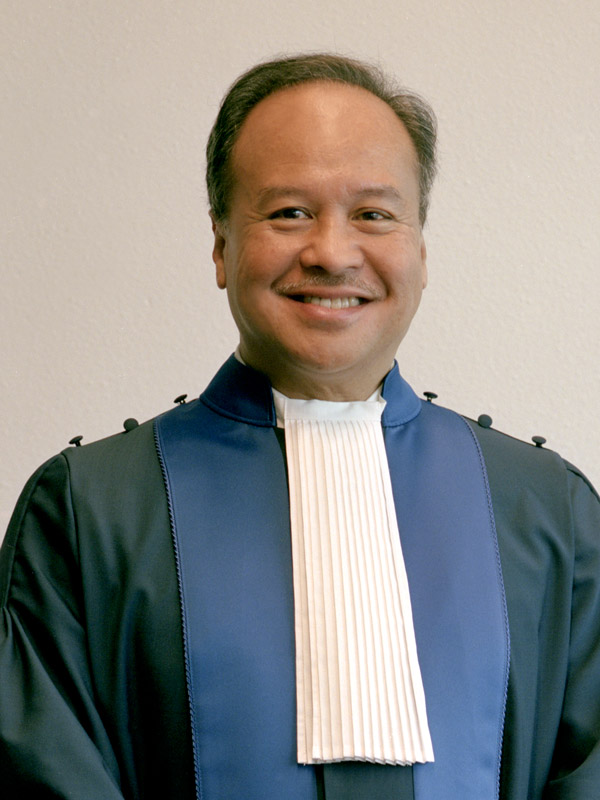
UP College of Law (CL) professor Raul C. Pangalangan was elected one of 22 new associate members of the Institut de Droit International (IDI/Institute of International Law) on August 23.
IDI members are invited by the organization, and they comprise the world’s leading public international lawyers and professors, including judges of the International Court of Justice and the International Criminal Court (ICC), both located at The Hague, Netherlands.
According to a post on the Institute’s Facebook page, the new associate members were elected at its 80thsession, which took place “online due to the COVID-19 situation.” “The session opened with a statement of its president, Ms. Xue Hanqin.”
Upon receiving news of his election as “membre associé,” Pangalangan said, “This is the most highly coveted recognition in the field of international law, and I am awed to sit at the same table as its most accomplished scholars and practitioners. At a time when it seems fashionable to be anti-foreign and anti-global, I hope our countrymen will see international law as a venue to advance our interests in solidarity with other like-minded nations.”
Pangalangan is the second Filipino to be elected to the IDI, the first being the late senior associate justice of the Supreme Court (1994-1995), Florentino P. Feliciano.
According to its Facebook page, the IDI was “founded on September 8, 1873 by 11 eminent international lawyers as an institution independent of any governmental influence which would be able to contribute to the development of international law and promote its implementation.” In principle, the IDI holds a session every two years to discuss the work of the “Scientific Commissions and to adopt the resolutions of a normative character. These resolutions are then brought to the attention of governmental authorities, international organizations, as well as the scientific community.”
The IDI was awarded the Nobel Peace Prize in 1904, “in recognition of its action in favor of arbitration among States, a peaceful means of settling disputes.”
The IDI initiated historic peace conferences and adopted resolutions on human rights and the peaceful resolution of disputes. Currently, it is examining the use of international law in protecting individuals and communities from epidemics.
Pangalangan recently retired as judge of the ICC, having served from July 2015 to March 2021. According to the CL website, he was the presiding judge “in the very first ICC case on the war crime of attacking cultural and religious heritage.”
The ICC is a permanent institution that has power to exercise “its jurisdiction over persons for the most serious crimes of international concern,” and “shall be complementary to national criminal jurisdictions.”
As ICC judge, Pangalangan was president of the ICC Trial Division until May 16, 2021, “to finish ongoing proceedings in accordance with paragraph 10, article 36 of the Rome Statute,” according to the ICC website.
Pangalangan also distinguished himself as Philippine delegate in the drafting of the Rome Statute in 1998. He co-chaired the national campaign for ratification by the Philippines and other Asia-Pacific states.
The Rome Statute of the ICC (https://www.icc-cpi.int/resource-library/documents/rs-eng.pdf) is the treaty that established the court, adopted during a diplomatic conference in Rome, Italy on July 17, 1998, and enforced on July 1, 2002.
Pangalangan, who specializes in public international law and constitutional law, earned his S.J.D. in 1990 and LL.M. in 1986 from the Harvard Law School, and “received the Sumner Prize for best thesis on issues relating to international peace, for his S.J.D. dissertation, and the Laylin Prize for best paper in public international law for his LL.M. thesis.”
He earned his LL.B. in 1983 and A.B., cum laude, in 1978 from UP. Pangalangan also received his diplôme from The Hague Academy of International Law in 1987.
Pangalangan served as dean of the CL from 1999 to 2005. — with a report from the College of Law Information and Publications Division
